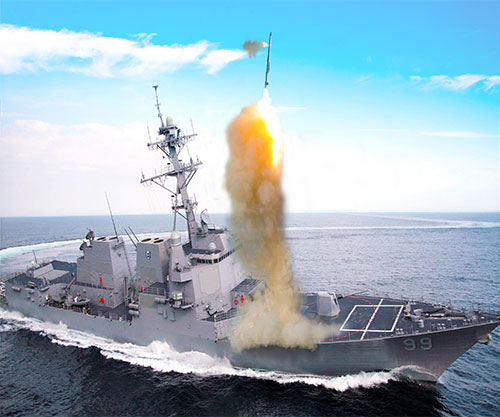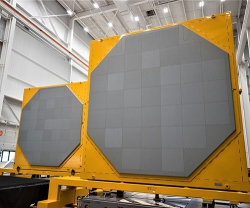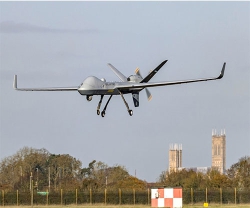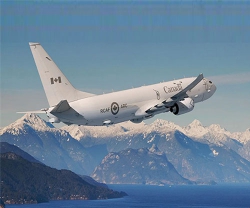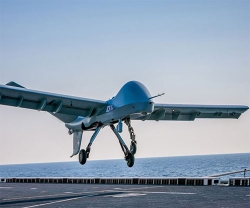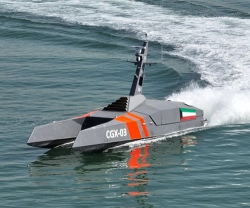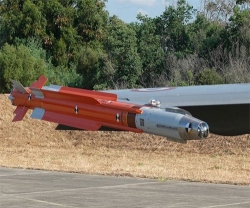For the first time, Lockheed Martin’s Patriot Advanced Capability - 3 (PAC-3) Missile Segment Enhancement (MSE) interceptor successfully communicated with the AN/SPY-1 Radar, a key component in the Aegis Weapon System.
Lockheed Martin is investing in a PAC-3 MSE/Aegis integration that could deliver a proven, Integrated Air and Missile Defense capability with growing capacity to help maritime customers defend against advanced, maneuverable threats.
“This successful test is a major step forward to fully integrate PAC-3 MSE into the Aegis Weapon System,” said Tom Copeman, Vice President, Naval Systems, Lockheed Martin Missiles and Fire Control. “A PAC-3 MSE/Aegis integration delivers a hardened defense to maritime fleets on an affordable, rapid timeline.”
Integrating PAC-3 MSE and the Aegis Weapon System first requires Lockheed Martin to modify the PAC-3 MSE Radio Frequency Data Link to communicate with the SPY-1 radar. The SPY-1 radar operates on an S-band frequency, which required Lockheed Martin to convert PAC-3 MSE’s existing dual-band datalink to a tri-band datalink to communicate at S-band. This successful test, funded internally by Lockheed Martin, validates the initial integration of this capability.
PAC-3 MSE’s unmatched Hit-to-Kill capabilities defends against advanced threats including tactical ballistic missiles, cruise missiles and aircraft. Currently, the PAC-3 MSE program is ramping up to 550 MSEs a year, with plans to continue growing. In 2022, Lockheed Martin opened a new 85,000-square-foot building expansion at the Camden, Arkansas, facility to support increased production capacity for PAC-3 MSE.
SPY-1 radars exist on nearly 100 U.S. Navy Aegis Cruisers and Destroyers, and with proven performance and growing capacity, integrating PAC-3 MSE with Aegis can help sailors stay ahead of evolving threats.
Headquartered in Bethesda, Maryland, USA, Lockheed Martin Corporation is a global security and aerospace company that employs approximately 116,000 people worldwide and is principally engaged in the research, design, development, manufacture, integration and sustainment of advanced technology systems, products and services.

